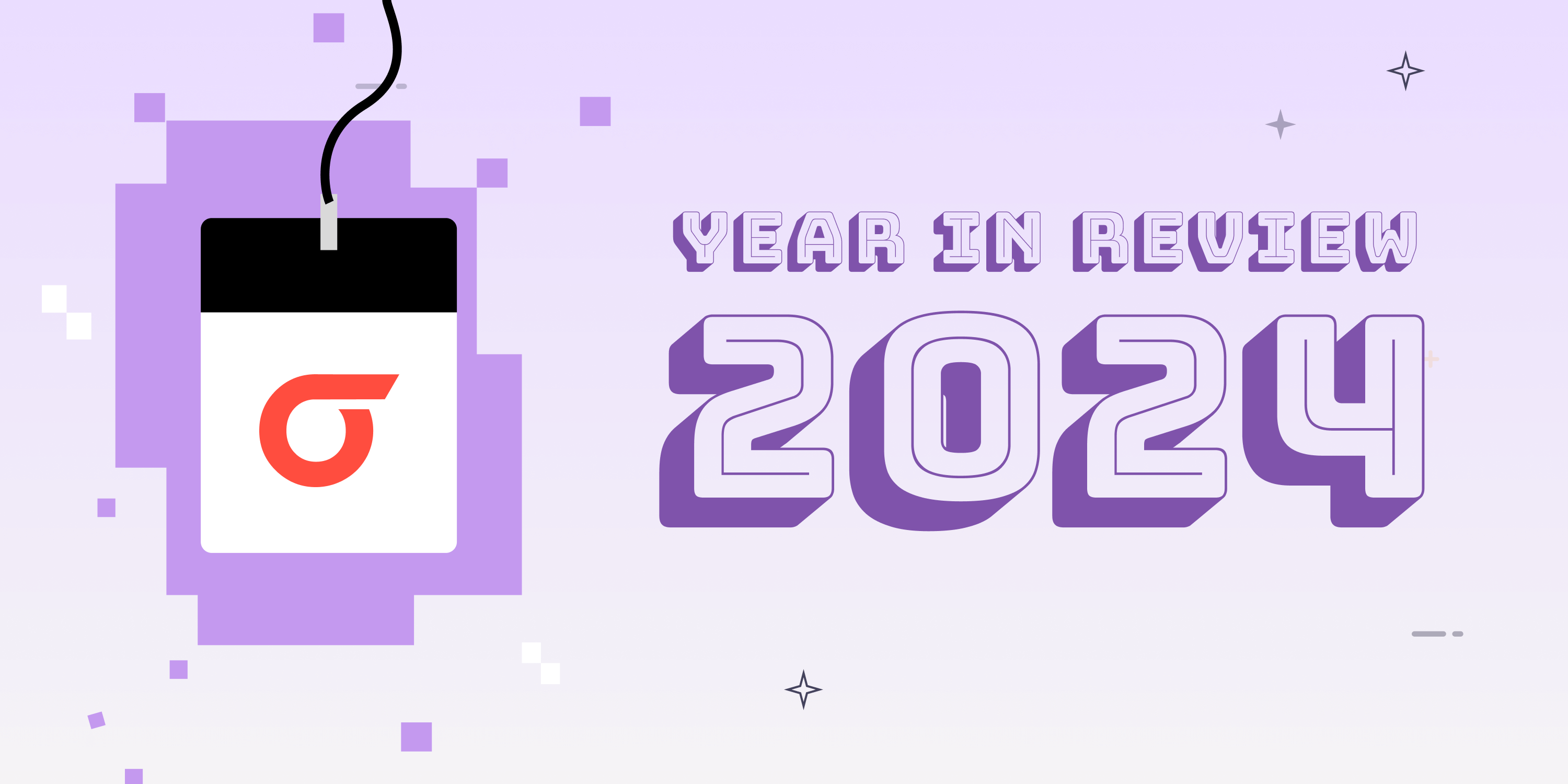Imagine an employee putting in extra hours to ensure the success of a major project. He was supposed to get a compensatory off to recharge. However, despite multiple emails and calls, his request got lost in the shuffle as HR was already swamped with other requests.
Due to most companies still relying on traditional HR management systems, their HR professionals struggle to streamline talent management, focus on employee engagement, and entertain employees’ requests. It leads to employee dissatisfaction and, even, builds a negative reputation for the company.
That’s when AI steps in!
AI in HR or human resources management empowers HR professionals with a more strategic approach that contributes to improving productivity, boosting efficiency, and enhancing employee satisfaction. Curious to learn how? Let’s dig deeper into this blog that spills the beans on the artificial intelligence revolutionizing HR management.
How is AI transforming Human Resources?
According to an online study, 60% of business leaders plan to employ artificial intelligence in human resources management by 2028.
The technology helps save time, costs, and resources while improving work efficiency and employee experience. Here are five unique use cases of AI in human resources management:
#1 Recruitment and Hirings
Artificial intelligence revolutionizes recruitment and hiring by automating time-consuming operations, such as screening thousands of resumes, identifying candidates based on given criteria, and more.
Using AI-powered software or tools, HR professionals can analyze job descriptions and find the best-matched candidates from a platform or portal. It reduces biases by selecting the candidate based on qualifications and relevant experience, fostering a diverse workforce.
#2 Onboarding and Offboarding Process
AI streamlines the onboarding and offboarding process by implementing automation in routine tasks. It eliminates paperwork and reduces manual effort while ensuring complete precision and exceptional speed.
The technology can help with personalizing the onboarding experience based on individual roles, ensuring enhanced engagement from the beginning. Like onboarding, AI can also facilitate exit interviews by collecting feedback and fetching data to figure out trends or issues that may cause high employee attritions.
#3 Workforce Planning
Artificial intelligence with its predictive analytics helps with workforce planning. AI with ML can analyze historical data and look into current workforce trends to predict hiring requirements, skill gaps, and possible reasons for turnovers.
With this, HRs can understand staffing requirements and fulfill them to ensure the company’s growth. AI-powered systems can also evaluate how market changes, organizational restructuring, and other situations impact the organization’s overall goals.
They can also leverage data-backed insights to make decisions about hiring new resources, training existing ones to optimize workforce efficiency, and minimizing costs linked to understaffing and overstaffing.
#4 Personalized Learning and Development
Organizations or companies can implement artificial intelligence in personalized learning and development by customizing training programs to meet individual employee needs and learning capabilities.
AI, together with machine learning, can identify and fulfill skill gaps by recommending training programs or key areas of improvement, ensuring employees are abreast of the latest technologies and market trends to contribute to their personal and organizational success.
Besides suggesting, AI can also track the progress of the training content in real time. For example, it can display the percentage of employees who have completed a particular program. It leads to improved job satisfaction and retention rates.
#5 Performance Management and Feedback
Leveraging artificial intelligence can help companies with performance management. AI-enabled tools and software can analyze productivity metrics and look into employee behavior and their superiors’ feedback to evaluate each employee’s performance. It also automates KPI tracking and the entire review process, saving time and effort.
Businesses can also use artificial intelligence to automate the employee feedback collection process, fostering a more transparent environment and leading to higher productivity and job satisfaction.
The technology can further help with strength and weakness analysis to address performance-related issues and make the personnel contribute maximum to their respective role.
#6 Employee Engagement and Retention
Artificial intelligence can assist with employee engagement and retention by identifying parameters that bring job satisfaction and predicting risks associated with turnovers. It also has the capability to analyze sentiments to understand employees’ engagement levels through automated surveys or emails.
The technology can also personalize engagement initiatives by preparing effective reward-related strategies and addressing problems, such as workload imbalance or poor growth opportunities, impacting employee satisfaction.
Paying attention to employee engagement and retention both fosters a positive work environment and boosts morale and loyalty, benefitting the organization in the long term.
#7 Compliance and Ethics Management
Artificial intelligence ensures companies’ policies and procedures are consistently followed by all employees. It minimizes the risk of legal and financial issues while automating compliance training and keeping employees up-to-date with the required regulations or ethics to be followed.
Artificial intelligence can also detect suspicious or unethical behaviors, empowering human resource professionals to address issues without any delay. Real-time insights and automated reporting can help companies to maintain high ethical standards.
#8 Benefits Management
Integrating AI into HR processes can automate the benefits management process, saving time and costs. The AI-powered systems can enroll employees in benefits plans without human intervention. Similarly, it can also expedite the claim processing process.
The technology assures each employee gets a personalized benefit plan that fulfills their requirements and delivers an unparalleled experience. It also helps attract and retain top talent while ensuring all employees feel valued and supported.
#9 Responding to Employees’ Queries
AI-powered virtual assistants can help organizations to be always available for their employees by answering their queries about benefits, procedures, or policies, minimizing the burden on HR professionals.
Chatbots built with artificial intelligence use NLP to understand the intent of employees’ queries and address them accurately with pre-defined answers. They can even refer their queries to the relevant departments.
Accurate and timely responses improve overall employee experience and create a positive work environment. If you are curious about how an AI-powered chatbot works, read this blog: How to Create an AI-based Chatbot App like Replika?
Advantages of AI in HR
Artificial intelligence in human resource management offers a plethora of benefits, allowing organizations to streamline their end-to-end HR operations, including employee engagement, talent acquisition, talent management, and automating other time-intensive operations. Here are some of the benefits it renders:

Enhances Efficiency
Implementing artificial intelligence automates repetitive tasks, such as screening resumes, scheduling interviews, and onboarding employees, allowing HR to focus on other strategic activities that require human touch. It improves operational efficiency while ensuring precision.
Minimizes Operational Costs
AI reduces manual efforts in daily human resource operations, including payroll processing, benefits administration, and compliance management. It decreases the overall operational costs while accelerating the speed of performing tasks.
Facilitates Informed Decision Making
Artificial intelligence can collect and process enormous amounts of data, patterns, and trends to offer critical insights into employee engagement, performance, and other crucial aspects. This data can also be used to identify areas of improvement and make data-driven decisions.
Offers Predictive Analytics
AI-powered predictive analytics in human resource management offers organizations predictive analytics to forecast future trends and behaviors. The technology along with machine learning analyzes historical data and enables HRs to anticipate workforce changes and other factors that can help to improve employee satisfaction, retention, and productivity.
Saves Time
With automation, AI empowers companies to save the time required to perform administrative, talent management, and employee feedback collection-related tasks. HR professionals can focus on other strategic initiatives to boost the organization’s growth.
Personalizes Employee Experience
Improving employee experience is a crucial task, especially in large organizations. AI-driven platforms can offer personalized learning and plan employee growth initiatives, enhancing their experience. Besides, AI-enabled assistants can quickly respond to employees’ queries, making them feel valued.
How to Implement Artificial Intelligence in Human Resources?
Integrating AI in HR operations requires in-depth expertise in artificial intelligence, thorough knowledge of human resource operations, and the challenges it faces. Businesses can either build an AI-powered system, software, or application from scratch or implement the technology into existing infrastructure.
In both cases, connect with an experienced and reputed AI development company with prior experience in building AI-powered software or solutions for the HR segment. Check its portfolio or case studies section or simply connect with its experts for a demo.
Ensure the company offers customized solutions that meet your unique requirements. Scalability is another key consideration to look for when choosing an AI development company for your project. Make sure the company signs a non-disclosure agreement (NDA) to ensure the privacy and confidentiality of your data. The company would follow these steps to implement AI in HR:
- Identifying the AI use case in human resource operations
- Designing and developing a new AI-powered solution or planning for AI integration your existing processes
- Testing
- Deploying the AI solution
- Training your employees to use AI’s to its maximum potential
- Ongoing support and maintenance to extend AI capabilities as and when required. It also includes fixing bugs associated with the solution.
5 Companies Using AI in HR
Below are some world-renowned companies that use artificial intelligence in their human resource operations:
#1 Fig Loans
Fig Loans prioritizes employee referrals for recruiting employees. The company leverages artificial intelligence to speed up the process of submitting and processing referrals.
#2 Pitch Grade
The company uses artificial intelligence in its talent acquisition processes and to streamline other HR practices. The technology helped the company to save the time and effort required to shortlist the best-fit candidates from a large pool of applicants.
#3 Just Eat
This Amsterdam-based company uses artificial intelligence for skill-based hiring. It integrated an AI-powered assistant for resume screening, reducing the overall recruitment time by 50%.
#4 Panasonic
The world-renowned Panasonic North America uses AI to get real-time insights and improve human resource management, resulting in improved employee experience and learning productivity.
#5 Kiehl’s
A recognized New York-based skincare company uses artificial intelligence to develop a learning platform that focuses on personalized learning to fulfill each employee’s specific needs.
Apart from these companies, if you want to know how other businesses are leveraging AI for various purposes, read this blog: How Businesses are Using Artificial Intelligence Currently?
The Future of AI in Human Resources
Artificial intelligence has a promising future in the human resource department. The technology enhances efficiency, improves decision-making, streamlines recruitments and onboarding, and automates other critical tasks with great precision and exceptional speed, paving the way for an organization’s success and employee satisfaction.
The technology can also personalize training programs, forecast employee turnover, measure job satisfaction, ensure fairness, and prevent biases, fostering a positive workplace environment. In the next few years, the rate of adopting artificial intelligence in human resource operations will increase exponentially.
Conclusion
Artificial intelligence transforms human resource management by bringing automation and providing data-powered analytics. That’s why most companies are investing in it to save time, improve efficiency, and enhance employee engagement. The blog highlights innovative applications of AI in HR so businesses or organizations can utilize this technology to its maximum potential. Besides use cases, we have also mentioned the advantages of AI in HR and how you can integrate the technology into your business processes.
Frequently Asked Questions About AI in HR?
What are the use cases of Artificial intelligence in human resource management?
Some applications of AI in HR in 2024 include:
- Recruitment and hirings
- Onboarding and offboarding
- Workforce planning
- Personalized learning and development
- Performance management and feedback
- Employee engagement and retention
- Compliance and ethics management
- Benefits management
- AI-powered virtual assistant to respond to employees’ queries
What are the benefits of using AI in HR?
Some interesting advantages of implementing AI in HR are:
- Improved efficiency
- Minimized operational costs
- Informed decision making
- Predictive analytics
- Personalized employee experience
- Improved employee engagement
- Reduced operational time
How to use AI for recruitment?
Artificial intelligence can be used in recruitment in the following ways:
- Automated resume screening
- Interacting with candidates via virtual assistants
- Crafting job descriptions
- Matching candidates with job descriptions
- Keeping candidates informed about their application status
How to use AI for performance reviews?
Artificial intelligence can be used for performance evaluation in the following ways:
- Creating a detailed performance profile with automated data collection
- Identifying KPIs
- Offering ongoing performance insights
- Promoting fair assessment of all employees
How to use AI for the onboarding and offboarding process?
Artificial intelligence can be used for onboarding and offboarding in the following ways:
- Automating documentation and paperwork
- Personalizing onboarding plans
- Responding to new candidates’ or leaving employees’ queries with AI-powered chatbots
How to use AI for workforce planning?
Artificial intelligence can be used for workforce planning in the following ways:
- Demand forecasting
- Skill gap analysis
- Resource allocation
- Cost management
How to use AI to ensure compliance and ethics in organizations?
Artificial intelligence can be used to ensure compliance and ethics in the following ways:
- Automated policy management
- Real-time monitoring of transactions, communications, and HR operations
- Tracking changes in regulations
- Automatically updating the compliance protocols
How to use AI to improve employee engagement and retention?
Artificial intelligence can be used to enhance employee engagement and retention in the following ways:
- Personalized learning and development
- Analyzing sentiments
- Employee feedback collection
- Performing engagement surveys
- Customizing retention strategies
Which is the best company to implement AI in HR operations or build AI-powered solutions or software for the HR department?
Quytech is the best AI development company that builds innovative and completely customized AI solutions and software that revolutionizes human resource management. To know more, share your unique project requirements or challenges you face with HR management.
Post Views: 15


















.png)


Discussion about this post